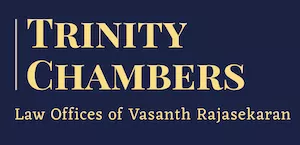- within Litigation and Mediation & Arbitration topic(s)
- with readers working within the Law Firm industries
- within Government, Public Sector, Real Estate and Construction and Criminal Law topic(s)
- with Finance and Tax Executives
Introduction
The Hon'ble Supreme Court in Kamal Gupta v. M/s L.R. Builders Pvt. Ltd.1 has held that a non-signatory to an arbitration agreement cannot be permitted to remain present in arbitration proceedings, as it would breach confidentiality requirements posed under section 42A of the Arbitration and Conciliation Act, 1996 ("the Act").
The Apex Court observed that under Section 35, an arbitral award binds only parties to the arbitration and those claiming under them. Section 2(h) defines "party" strictly as a party to the arbitration agreement. Allowing non-signatories to participate, therefore, has no legal basis and is "unknown to law".
The Apex Court further clarified that once an arbitrator is appointed under Section 11(6), the referring Court becomes functus officio and cannot issue further ancillary directions as the Act is a self-contained code which expressly limits judicial intervention through Section 5.
Brief Facts
The dispute arose out of an oral family settlement dated 20.06.2015 between Pawan Gupta and Kamal Gupta. The family settlement had been reduced into a Memorandum of Understanding/ Family Settlement Deed ("MoU"/ "FSD") dated 09.07.2019. Rahul Gupta, son of Kamal Gupta, did not sign this MoU/ FSD.
Pursuant to the emergence of certain disputes, Pawan Gupta filed a petition under Section 11(6) of the Act, seeking the appointment of a sole arbitrator. In the proceedings filed under Section 11(6), Rahul Gupta filed an intervention application opposing the maintainability of the petition. He also filed an application under Section 9 of the Act.
On 22.03.2024, the High Court, while disposing of Pawan Gupta's petition filed under Section 11(6) of the Act, appointed a sole arbitrator. Furthermore, the High Court dismissed the intervention application and directed that the Section 9 petition be treated as an application under Section 17 of the Act.
Rahul Gupta, along with others, once again filed applications in the disposed proceedings, seeking permission to observe the arbitral proceedings. The learned Single Judge, by way of an order dated 07.08.2024, permitted Rahul Gupta and the non-signatories to attend the arbitral proceedings. The aforesaid order was made absolute in another order dated 12.11.2024.
Aggrieved by the orders permitting Rahul Gupta to be present in the arbitral proceedings, Pawan Gupta and Kamal Gupta challenged the directions passed on 07.08.2024, further confirmed on 12.11.2024 before the Hon'ble Supreme Court.
Decision of the Supreme Court
The Supreme Court framed the following two issues in the present matter:
- Whether a non-signatory to the arbitration agreement can remain present in the arbitration proceedings?
- Whether the referral Court can issue further directions after appointing an arbitrator under Section 11(6)?
The Apex Court answered both questions in the negative.
- On Non-Signatories Observing The Arbitration Proceedings
The Apex Court noted that while appointing the sole arbitrator on 22.03.2024, the single judge of the High Court had dismissed the intervention application, holding that the intervenors' apprehension about their properties being affected was misplaced because they would not be bound by any arbitral award.
It was held that their presence was not essential for the adjudication of disputes between the signatories, Pawan Gupta and Kamal Gupta. The Supreme Court observed that non-signatories cannot remain present in arbitral proceedings as strangers. The Apex Court reiterated that a non-party has remedies only under Section 36 if an award is enforced against them.
The Apex Court further observed that permitting a stranger to observe the arbitration proceedings would result in breach of the provisions contained in Section 42A of the Act.
The Supreme Court was therefore of the view that the permission granted to Rahul Gupta and others non-signatories to remain present at all proceedings before the sole arbitrator was without jurisdiction and beyond the scope of the Act.
b. On the Referral Court's Powers After Section 11(6) Appointment
The Supreme Court noted that the Section 11(6) petition and the Section 9 petition were disposed of on 22.03.2024 after appointment of the sole arbitrator, and no proceedings were pending thereafter. Despite this, Rahul Gupta filed fresh intervention applications in August 2024. The Apex Court held that once the Section 11(6) proceedings were disposed of, the referral Court had become functus officio and lacked jurisdiction to entertain further applications for intervention.
Even assuming Rahul Gupta's apprehension was bona fide, the Supreme Court held it could not justify permitting a stranger to remain present in arbitral proceedings when the Act does not envisage such a role.
Relying upon the judgment in In Re:Interplay between Arbitration Agreements under the Arbitration and Conciliation Act, 1996 and the Indian Stamp Act, 18992, the Supreme Court reiterated that judicial intervention in arbitration is minimal and confined to what is provided in Part I of the Act. The Arbitration Act, being a self-contained code, excludes any procedure not specified therein. The Apex Court observed, "even the spirit of Section 5 of the Act precluded the Court from entertaining such request which does not find place in Part-I of the Act. Moreover, the impugned direction runs counter to Section 42A of the Act."
The Supreme Court held that once an arbitrator is appointed, no further action is necessary under Section 11(6). Requests for intervention by non-signatories were outside the scope of the Act, and even Section 151 of the Code of Civil Procedure, 1908 could not be invoked.
Consequently, the Apex Court allowed the appeals and imposed costs of INR 3 Lakhs on the respondents payable to the Supreme Court Advocates-On-Record Association.
Comments
This judgment upholds two crucial pillars of Indian arbitration law: 'confidentiality' under Section 42A and 'minimal judicial intervention'. Equally important is the emphasis of the Apex Court on the functus officio doctrine under Section 11(6). The role of the referral Court comes to an end once it appoints an arbitrator. Any attempt by parties to reopen intervention through miscellaneous applications would defeat the legislative objective of insulating arbitral proceedings from excessive court interference.
The Supreme Court's approach also provides clarity for cases where family or shareholder disputes involve parties who are non-signatories. Even though such non-signatories may claim substantive rights elsewhere, they cannot gain audience in arbitral proceedings unless they fall within recognised exceptions (such as group of companies doctrine or composite transaction principles).
Footnotes
1.Kamal Gupta v. M/s L.R. Builders Pvt. Ltd., [2025 INSC 975].
2. 2023 INSC 1066. Paras 14- 22.
The content of this article is intended to provide a general guide to the subject matter. Specialist advice should be sought about your specific circumstances.




